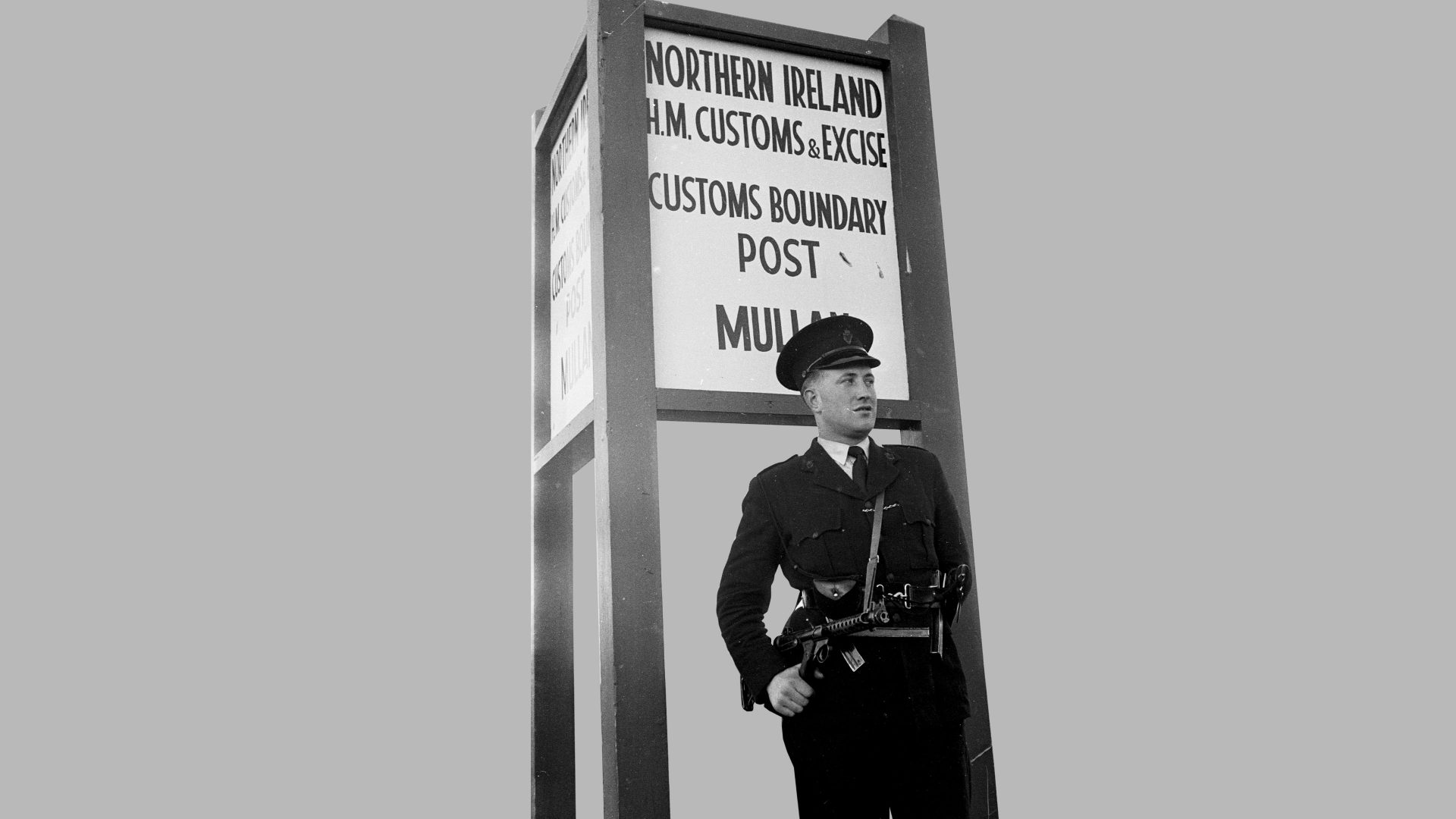After filming a riot at the 2009 Pittsburgh summit, me and my TV crew felt the need for liquid refreshment. We found a bar and, within seconds, realised it was full of off-duty and retired cops. Then we realised – to our greater astonishment – that the whole place was a shrine to the IRA.
Beneath portraits of hunger strikers Bobby Sands, Francis Hughes, Raymond McCreesh, and with the Starry Plough hanging alongside pipe band memorabilia, weary riot cops munched burgers, while their elderly colleagues nursed beers.
Watching the reaction of my team, it was at this moment that I realised: British people do not understand Ireland.
You can feel the cognitive dissonance as our media try to get their heads around the idea of a Sinn Fein first minister at Stormont. Or an Irish unity referendum within the decade. It’s not 30 years ago that the same news channels were forced, routinely, to cut the sound on Sinn Fein politicians, after the British government banned their words from the airwaves.
Now there is the serious long-term prospect of a united Ireland – but the imminent prospect of a constitutional crisis.
The Democratic Unionist Party, which became the hegemonic voice of the Unionist community in Northern Ireland, has seen its voting base fragment. Some have moved to the hardline TUV; others to the softer UUP. More significantly, the increasingly secular urban salariat, have voted for the cross-community Alliance Party in large numbers.
Meanwhile Sinn Fein, transformed into a professionalised left party North and South, enjoys hegemony in the anti-Unionist community.
For a state created with the single purpose of ensuring a Protestant majority, this is a historic change. It is likely the DUP, in response, will refuse to sit in the Assembly, triggering months of governmental paralysis.
Its aim is to force the British government to renege completely on the Northern Ireland Protocol, which drew a trade border in the Irish Sea, leaving the North effectively in the economic orbit of the Republic, in order to avoid a new land border across Ireland. Spurred on by the hardline TUV, there is every chance that the DUP will succeed, plunging Britain into a diplomatic and trade crisis with both Europe and the USA.
It was Unionist leader Sir James Craig who, in 1934 famously boasted that Stormont was “a Protestant parliament and Protestant state”. Few people remember the words that followed, but they’re highly relevant today.
“It would be rather interesting for historians of the future,” said Craig, “to compare a Catholic state launched in the South with a Protestant state launched in the North and to see which gets on the better and prospers the more”.
Well, the results are in. Today, the Republic is a booming financial, technological and cultural powerhouse. After a downturn following the 2008 financial crisis, the Irish economy is now 55% bigger than when its banks collapsed.
Northern Ireland by contrast is 2.5% smaller than before the financial crisis. Though it has lower house prices than the rest of the UK, average incomes are also amongst the lowest. As a result, according to the Joseph Rowntree Foundation, one in four children live in poverty.
What Northern Ireland needs is stability and growth. In central Belfast you can see how that might happen. There’s a raucous nightlife for the young professionals who work there – and the same trendy pubs and bars you’d see in any British city. The city could, if its politicians were not fighting battles over flags and bonfires, coat-tail Dublin as a financial and cultural centre.
Craig’s vision, of a prosperous industrial North outpacing the priest-ridden rural society of the South, has completely evaporated. It had done so, in truth, long before Brexit, but Brexit has made the problem existential.
If the British political elite actually understood Ireland, they might have forseen this. But here’s the bigger problem.
In the first place, there is no “British” political elite anymore. The SNP is politically hegemonic in Scotland, and may even take Scotland out of the Union. Welsh politics has consolidated around the devolved institutions, and a semi-permanent Labour-Plaid pact. And the Conservative party has embraced English nationalism. That leaves the hardline Unionists of Northern Ireland as almost the last true British nationalists.
As for the English, their grasp of the dynamics of Ireland, north and south, are skewed by the imperialist mind-set. Just as Russian nationalists have trouble even conceiving of Ukraine as an independent, sovereign nation – so Tory England has trouble with the very concept of Ireland.
They grasp for the familiar: they understand what’s going on at Lansdowne Road, in the rugby union internationals; but few have ever been to Croke Park, the pulsating mecca of Hurling and Gaelic Football.
Sinn Fein’s rise to the status of the joint largest party, and official opposition in the Dáil Éireann, has barely registered in English political circles. Meanwhile Toryism has become so introspective, so obsessed with vanity projects like the “Indo-Pacific tilt” I doubt there is a majority of Tory MPs who would even care if a United Ireland came about.
What the Tories cannot admit is that the Republic is a successful, confident economy backed – for now – by the American presidency and the European Union, while post-Brexit Britain is a state fragmented by rival nationalisms and the culture war. Like the concept of a “pro-IRA police bar”, it just doesn’t fit their framing of the world.
If the DUP succeed in detonating the Northern Ireland Protocol, while simultaneously paralysing the governance of the state, unrest will inevitably follow.
The challenge for Republicanism is not just to isolate the men of violence on its own fringes, but to chart a path to Irish unity that can appeal across all the cultural and religious divides. That may take longer than most of its proponents think, but few can doubt – after Sinn Fein’s victory on May 5 – that it is seriously on the agenda.




